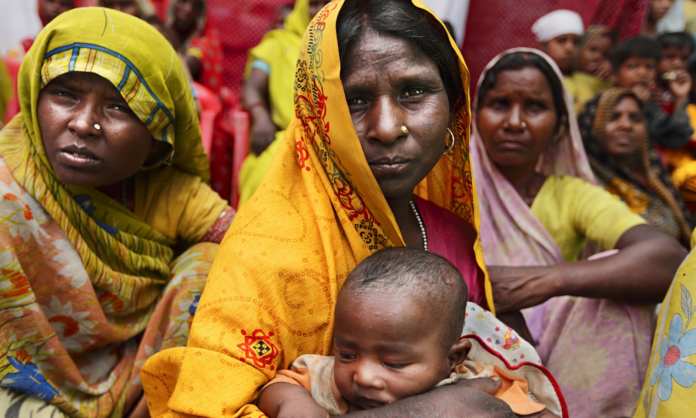As violent protests continue in the Prime Minister’s home state of Gujarat over the flogging of Dalit youth by upper-caste Hindu vigilantes, an IndiaSpend analysis reveals a conviction rate six times lower than the Indian average–over 10 years–for crimes against scheduled castes (SCs) and scheduled tribes (STs).
In 2014 (latest available data), 3.4% of crimes against SCs in Gujarat ended in convictions, against a comparable national rate of 28.8%–that is, one conviction for every eight across the country. Against STs, that conviction rate was 1.8%, against the national average of 37.9%–that is, one conviction for every 21 across the country according to the IndiaSpend article written by Nikhil M Babu.
Dalit unrest began on July 11, 2016, when four Dalit youth were tied to a car and gaurakshaks, or cow protectors, took turns to flog them as a crowd watched. The crime: Skinning a dead cow. Later, the upper-caste vigilantes posted a video of the flogging on social media as a warning of sorts to others–Dalits and Muslims. The video of another attack in May has also now emerged.
The Gujarat government has arrested suspects, but the gaurakshaks’ courage appears rooted in the failures of Gujarat’s criminal-justice system in addressing crimes against the lowest of Hindu castes and tribes. A similar failure is evident in Maharashtra and Karnataka.
Over a decade, conviction rate of crimes against SCs is 5%; against STs, 4.3%
Over the decade ending 2014, the average conviction rate in cases of crimes against SCs in Gujarat was 5%; in crimes against STs, it was 4.3%. The national average was 29.2% and 25.6% respectively, according to NCRB data.
This means that suspects in 95 of 100 cases are acquitted. Over 10 years, the lowest conviction rate in crimes against SCs in Gujarat was 2.1% in 2011; against STs, it was 1.1% in 2005.
The conviction rate for all crimes registered under the Indian Penal Code nationwide was 45.1% in 2014.
Read the full article here
Feature image courtesy dalitbangladesh.wordpress.com



























